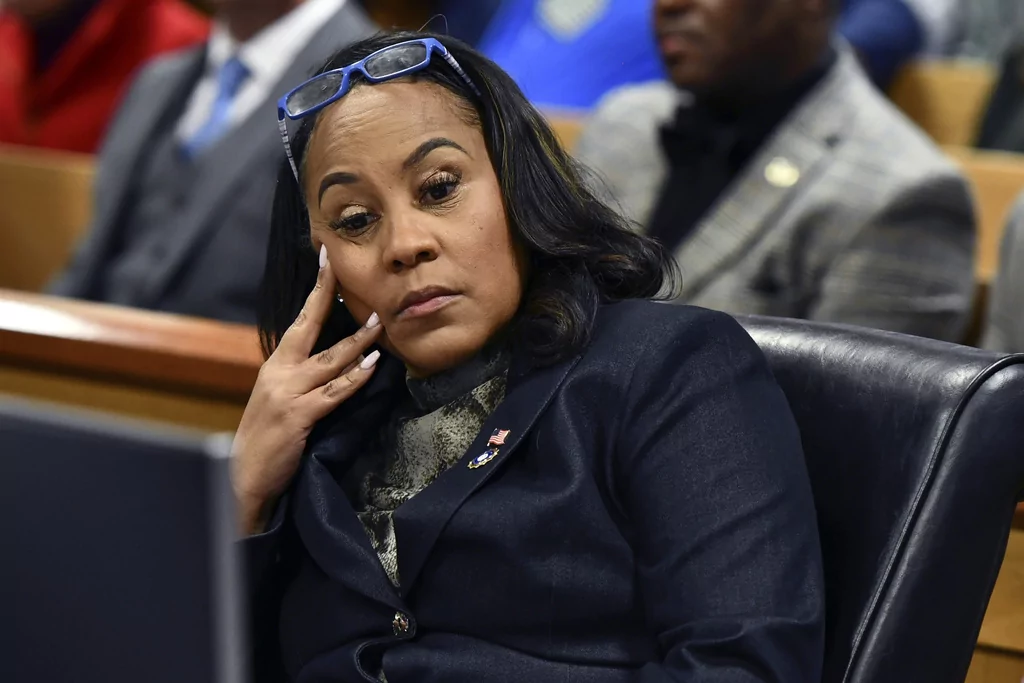

The Supreme Court‘s ruling this week that presidents have some immunity from criminal prosecution came in response to arguments Donald Trump made about his case in Washington, D.C., but the decision could also dramatically affect the former president’s case in Georgia.
The high court ruled that a lower court judge will have to sift through Trump’s federal election interference indictment to determine which acts are official and private. Judge Tanya Chutkan will then have to decide which of Trump’s official acts are absolutely immune from prosecution and which are only presumptively immune. A judge in Georgia may eventually have to do the same.
It is unclear how this tedious process, which legal experts say could evolve into a mini-trial of its own over the next few months, will affect Trump’s four charges in Washington, but the Supreme Court provided guidelines that suggest special counsel Jack Smith’s case will be significantly weaker once immunized acts are excised from it.
Of Trump’s four criminal cases, the one in Georgia is the most similar to the one in Washington. Fulton County District Attorney Fani Willis alleged Trump and 18 co-defendants violated the state’s racketeering laws by attempting to overturn the 2020 election illegally in a battleground state that Trump narrowly lost.
Willis’s sweeping indictment featured dozens of acts that, when looked at as a whole, result in an alleged violation of Georgia’s Racketeer Influenced and Corrupt Organizations Act. The acts included Trump having phone calls or meetings with state lawmakers, posting false statements on his X account about the election while he was still president, and communicating with officials in his Department of Justice.
The Supreme Court outlined in its guidance that a president’s communication with the DOJ is a core function of the office and must always be immune from prosecution. Other acts, such as a president’s communication with state officials or his public statements, could be immune from prosecution, but a lower court judge must decide that under the Supreme Court’s new framework.
As with Smith’s charges, the Supreme Court’s ruling threatens to imperil Willis’s indictment depending on what the judge in Georgia determines are official acts.
Unlike in Washington, where prosecutors and Chutkan can quickly forge ahead to address immunity in the case, the Georgia case has another layer of problems.
Judge Scott McAfee, the Fulton County Superior Court judge presiding over Trump’s case, ruled earlier this year that Willis was not disqualified from the case after Trump and his co-defendants argued a relationship she had with a prosecutor created an irreversible conflict of interest.
Trump appealed McAfee’s decision, and now the Georgia Court of Appeals has taken the judge’s decision under review.
Trump also requested several months ago that his case in Georgia be dismissed because of presidential immunity, and McAfee said he would wait until the Supreme Court issued its decision before he addressed Trump’s request.
Allegra Lawrence-Hardy, a Georgia-based lawyer who specializes in elections, noted that the Georgia appellate court likely will not address Trump’s appeal about disqualification until the first quarter of 2025, meaning McAfee currently does not have jurisdiction over the case to make decisions about immunity.
“It is very unlikely that the trial court will even have jurisdiction to rule on this motion or to have its own mini-trial prior to the election,” Lawrence-Hardy said Monday on a call with reporters.
She observed, however, that Trump’s immunity argument to the Supreme Court “very closely tracks the briefing in this case,” suggesting the case will undergo the same mini-trial exercise as the one that is anticipated in Washington.
It is also unclear how the Supreme Court’s ruling will affect Trump’s co-defendants. It could have zero impact on some, but others, such as former DOJ official Jeffrey Clark and former chief of staff Mark Meadows, may see some relief because their actions involving Trump could be protected by presidential immunity now.
Anthony Michael Kreis, a Georgia State University law professor, said in a post on X that it is unlikely that Clark would be able to face charges in the same case as Trump because evidence against Clark that involves Trump is now protected by immunity and cannot be included in Trump’s case.
Kreis said the court’s decision complicates trying Meadows but does not rule it out.
“As a consequence, it’s rather unlikely that Jeff Clark will ever be tried alongside Donald Trump at the same time,” Kreis wrote. “The Meadows issue will be considerably more complex.”
CLICK HERE TO READ MORE FROM THE WASHINGTON EXAMINER
The cases in Washington and in Georgia appear poised to stretch for several months or longer, but if Trump, the presumptive Republican presidential nominee, were to win the election, he could attempt to use his pardon power to toss his federal case out.
While the Georgia case is stalled indefinitely and may be drastically diminished once immunity questions are sorted out, Trump would be unable to pardon himself there.




